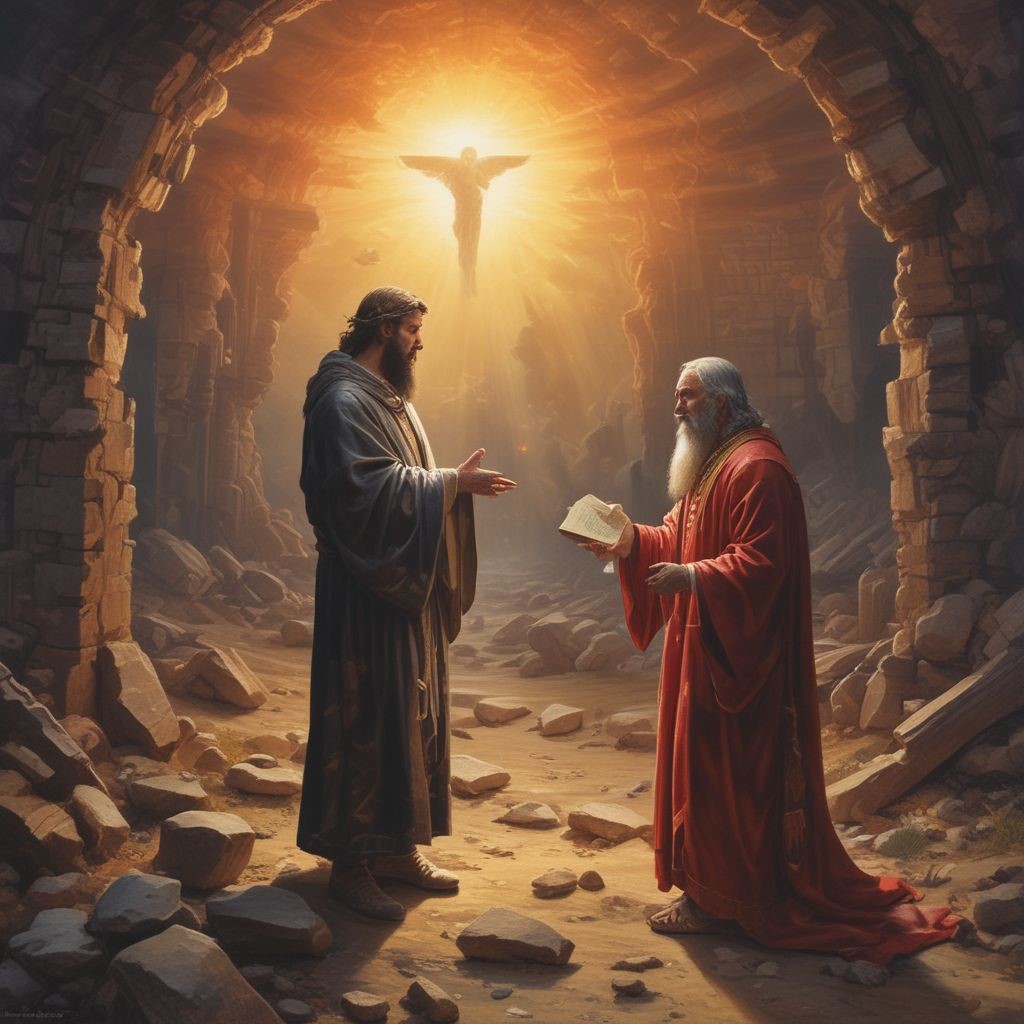The Bible, as the inspired word of God, is considered by Christians to be inerrant and infallible (2 Timothy 3:16). However, critics have raised concerns over what they perceive to be contradictions in the Bible. From a Christian perspective, these so-called contradictions often stem from misunderstandings of context, cultural differences, or incomplete interpretations. Below are 10 common examples of supposed contradictions, along with explanations for why they are not contradictions.
1. Creation Order: Genesis 1 vs. Genesis 2
- The Contradiction: Genesis 1 describes the creation of plants, animals, and then humans, while Genesis 2 seems to suggest that man was created before plants and animals.
- Explanation: Genesis 1 gives a chronological overview of creation, while Genesis 2 focuses specifically on the creation of man and the Garden of Eden. Genesis 2:4-25 is not meant to be a chronological retelling, but a more detailed account of the creation of humanity in a specific location.
- Scripture References: Genesis 1:1-31; Genesis 2:4-25.
2. Cain’s Wife: Where Did She Come From?
- The Contradiction: Genesis 4:17 states that Cain had a wife, but there’s no mention of other people besides Adam, Eve, and their sons.
- Explanation: Genesis does not explicitly detail every descendant of Adam and Eve. However, Genesis 5:4 says that Adam had “other sons and daughters,” meaning Cain likely married one of his sisters. This was not prohibited in the early generations of humanity.
- Scripture References: Genesis 4:17; Genesis 5:4.
3. God’s Repentance: Does God Change His Mind?
- The Contradiction: In 1 Samuel 15:29, it says God does not repent or change His mind, but in Exodus 32:14, God seems to repent after Moses intercedes.
- Explanation: The Bible uses anthropomorphic language to describe God’s interactions with humanity. In 1 Samuel, it is referring to God’s unchanging nature, especially in His moral will and ultimate plan. In Exodus, “repent” is describing God’s willingness to delay judgment, showing mercy in response to intercession.
- Scripture References: 1 Samuel 15:29; Exodus 32:14.
4. Judas’ Death: Hanging or Falling?
- The Contradiction: Matthew 27:5 says Judas hanged himself, but Acts 1:18 says he fell headlong, and his body burst open.
- Explanation: These are complementary descriptions of the same event. Judas initially hanged himself (Matthew 27:5), and over time, as his body decomposed or fell from where he hanged himself, his body burst open (Acts 1:18).
- Scripture References: Matthew 27:5; Acts 1:18.
5. Jesus’ Genealogy: Matthew vs. Luke
- The Contradiction: Matthew 1:1-16 and Luke 3:23-38 provide different genealogies of Jesus, with discrepancies in names and lineage.
- Explanation: Matthew traces Jesus’ legal lineage through Joseph, emphasizing Jesus’ royal right as the heir of David. Luke, on the other hand, traces Jesus’ biological lineage through Mary, focusing on His humanity. Both genealogies serve different theological purposes.
- Scripture References: Matthew 1:1-16; Luke 3:23-38.
6. God Tempting People: James vs. Genesis
- The Contradiction: James 1:13 says God does not tempt anyone, but Genesis 22:1 says God tempted Abraham.
- Explanation: The word “tempt” in Genesis 22:1 is better translated as “tested.” God tests His people’s faith to refine them but does not tempt them to sin. The passage in James clarifies that God does not entice anyone to do evil.
- Scripture References: James 1:13; Genesis 22:1.
7. Seeing God: Can Anyone See God?
- The Contradiction: Exodus 33:20 says no one can see God and live, but in Genesis 32:30, Jacob claims to have seen God face to face.
- Explanation: In Genesis 32:30, Jacob likely encountered a manifestation of God, such as the Angel of the Lord, a theophany, not the full unveiled glory of God. Exodus 33:20 refers to seeing God in His full essence, which is impossible for humans to endure.
- Scripture References: Exodus 33:20; Genesis 32:30.
8. Jesus’ Last Words: Different Accounts
- The Contradiction: The Gospels record different last words of Jesus on the cross. Matthew 27:46 and Mark 15:34 record Jesus saying, “My God, my God, why have you forsaken me?” while Luke 23:46 records Him saying, “Father, into your hands I commit my spirit,” and John 19:30 records, “It is finished.”
- Explanation: These statements are not contradictory but are different sayings at different moments. The Gospels highlight different aspects of Jesus’ final moments, showing His suffering, trust in the Father, and fulfillment of His mission.
- Scripture References: Matthew 27:46; Mark 15:34; Luke 23:46; John 19:30.
9. The Number of Angels at the Tomb
- The Contradiction: Matthew 28:2-5 mentions one angel at Jesus’ tomb, but Luke 24:4 and John 20:12 mention two angels.
- Explanation: Matthew does not say there was only one angel; he focuses on the one who spoke. Luke and John provide a fuller picture by mentioning both angels. The accounts are complementary rather than contradictory.
- Scripture References: Matthew 28:2-5; Luke 24:4; John 20:12.
10. The Sabbath Day: Is it Saturday or Sunday?
- The Contradiction: The Old Testament commands that the Sabbath is on the seventh day (Saturday), but Christians worship on Sunday.
- Explanation: The Old Testament Sabbath is indeed on Saturday (Exodus 20:8-11). However, after Jesus’ resurrection on Sunday (Mark 16:9), Christians began gathering on Sunday, the “Lord’s Day,” in honor of His resurrection (Acts 20:7). This shift in practice does not negate the original command but reflects the New Covenant focus on Christ’s work.
- Scripture References: Exodus 20:8-11; Acts 20:7; Mark 16:9.
Conclusion
The Bible, when interpreted with an understanding of context, language, and theology, is harmonious and without error. Many so-called contradictions arise from misunderstandings or reading passages in isolation. When taken together and examined in light of Scripture as a whole, these supposed contradictions reveal deeper truths about God’s character and His plan for humanity. Rather than stumbling blocks, they invite believers to study the Bible more deeply and discover the unity and consistency of God’s Word.




